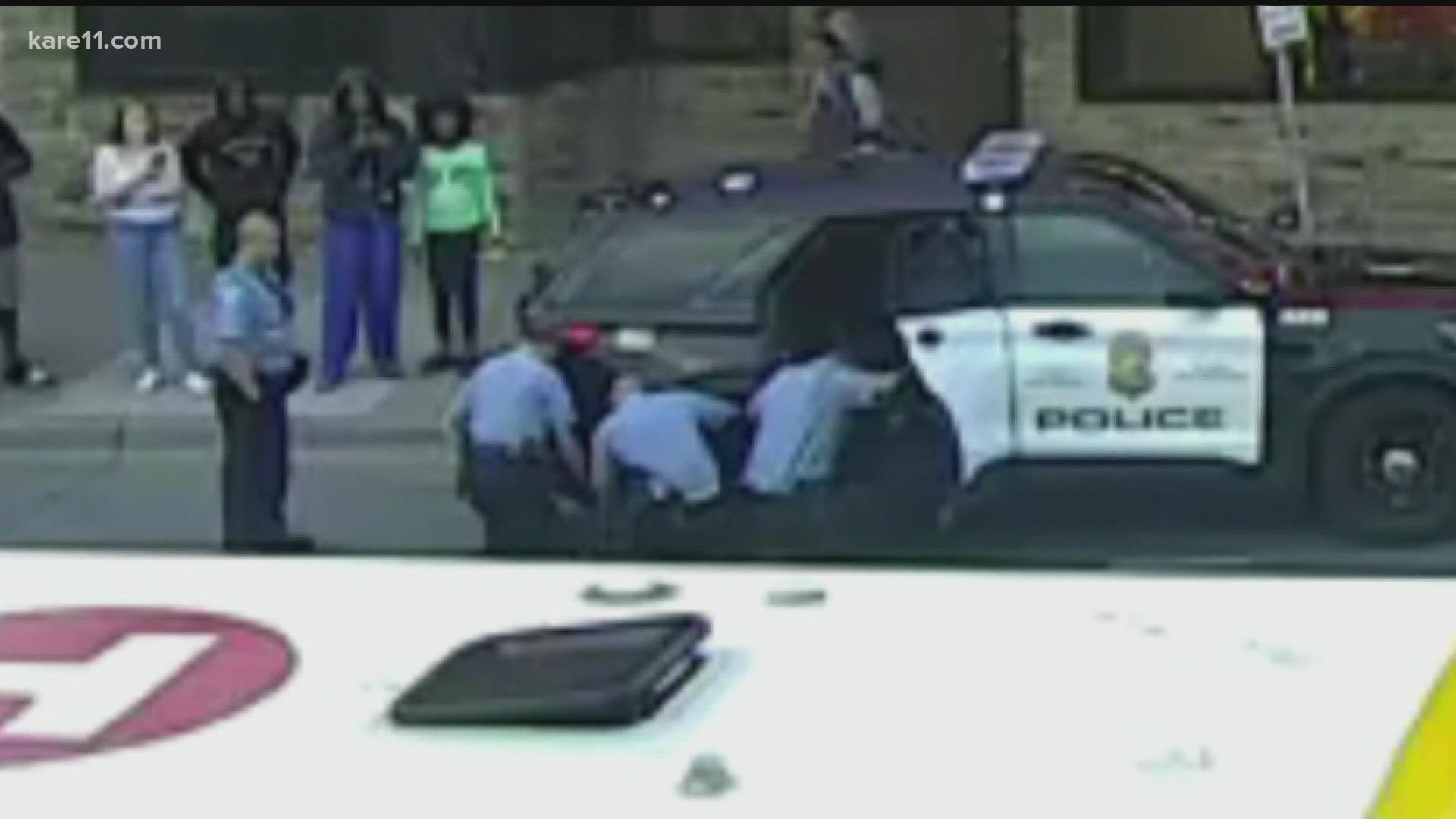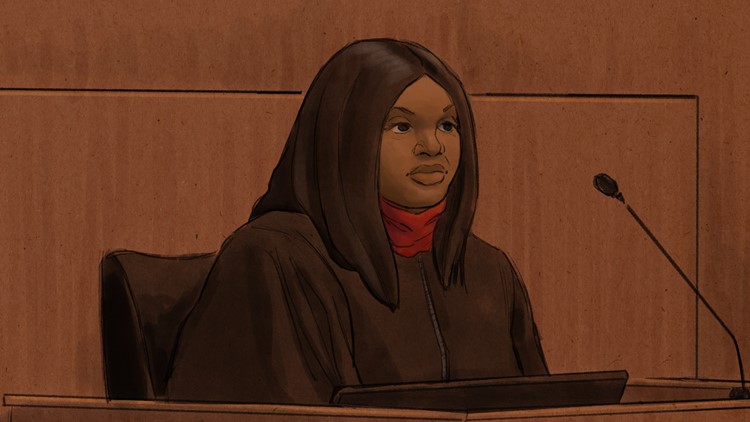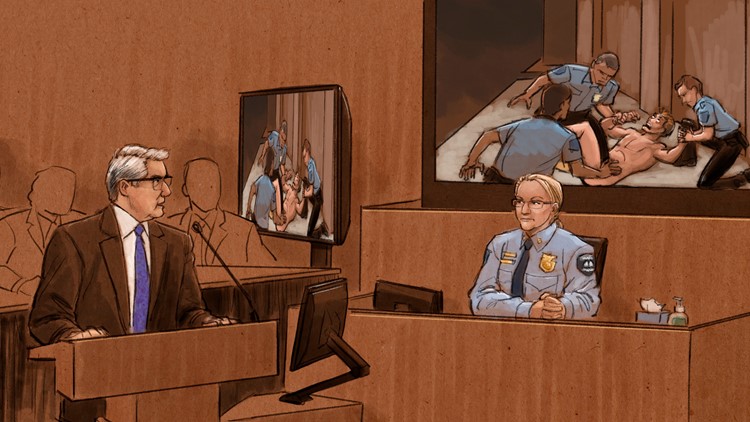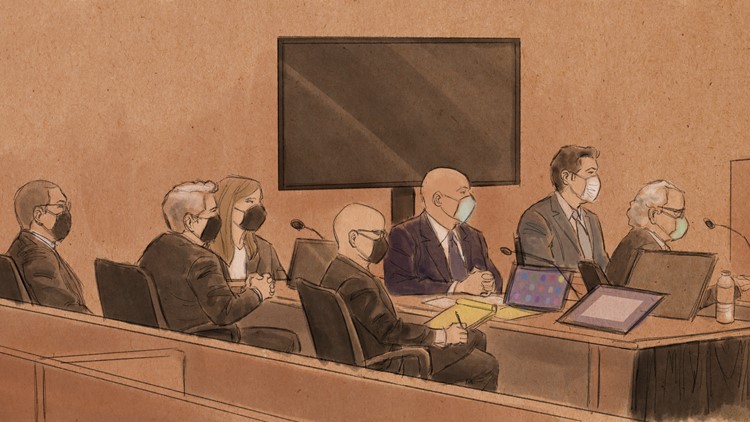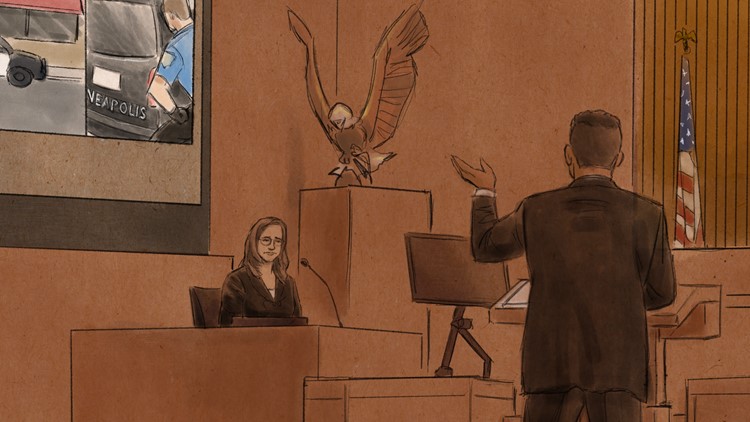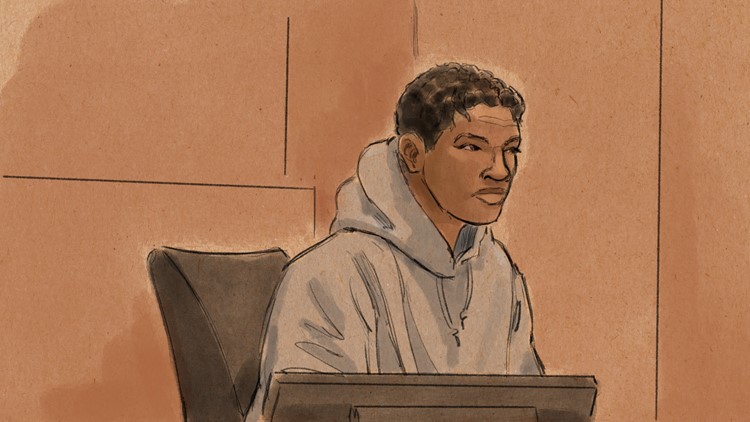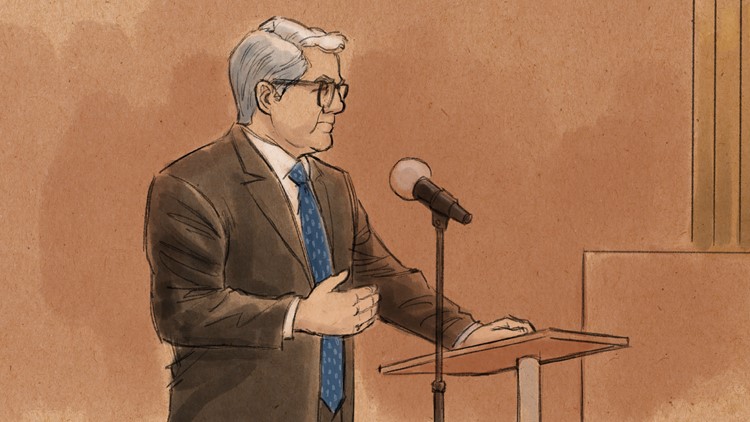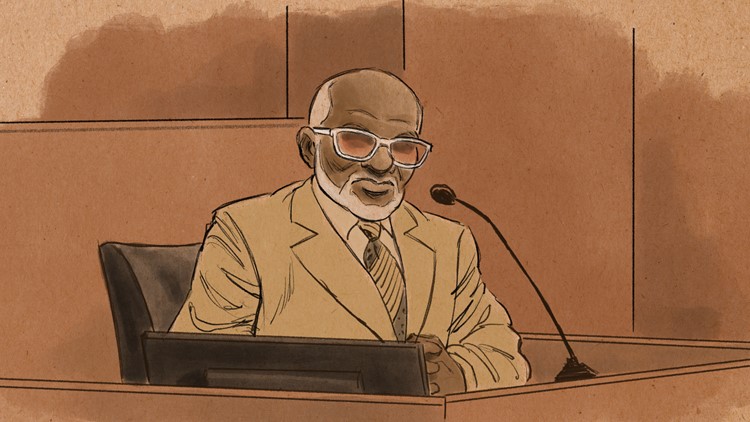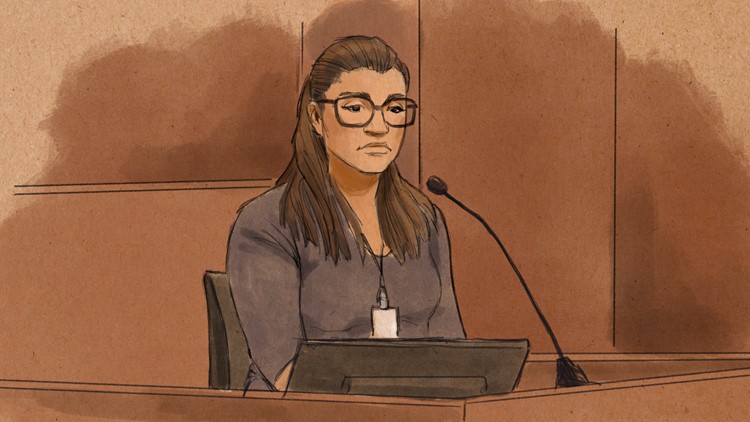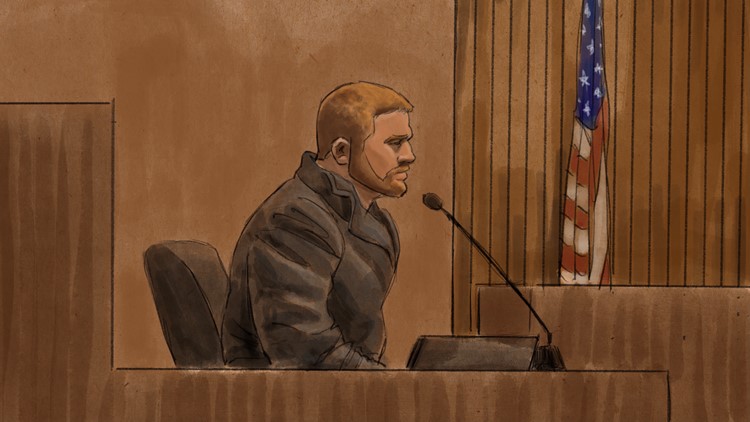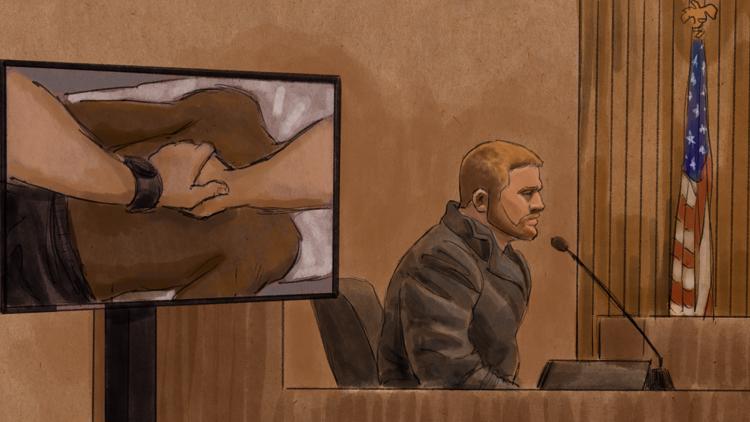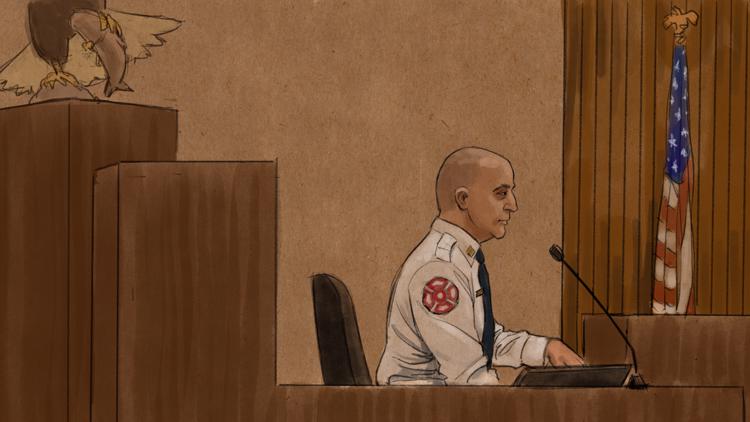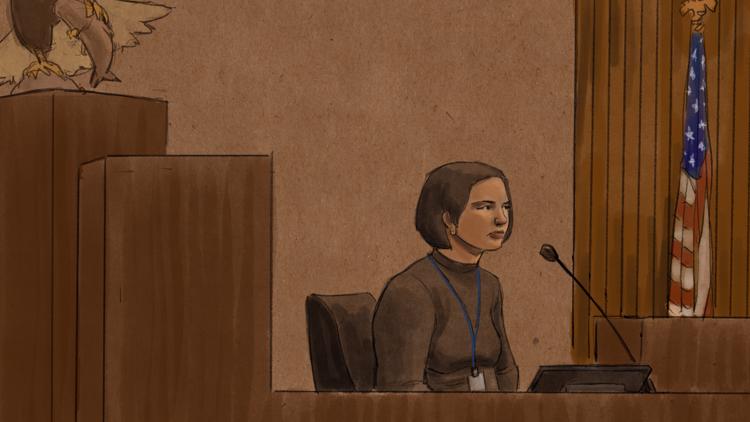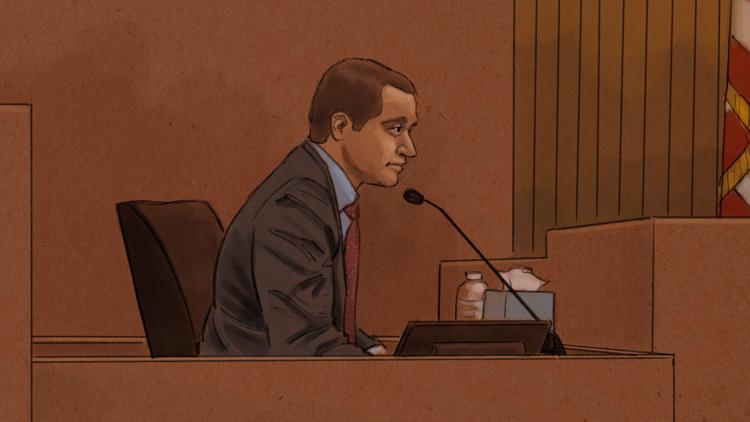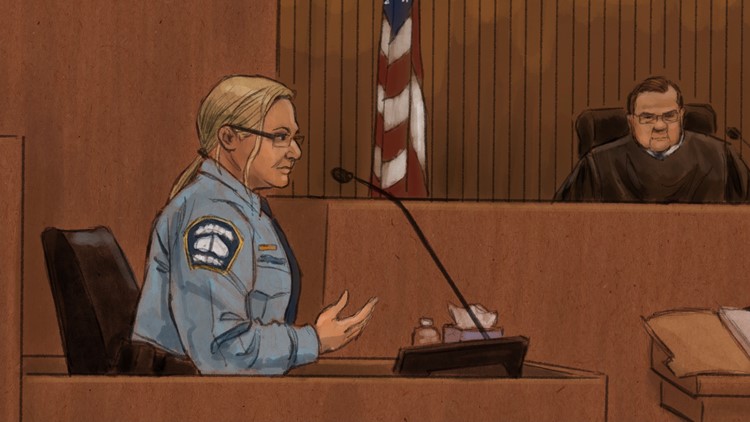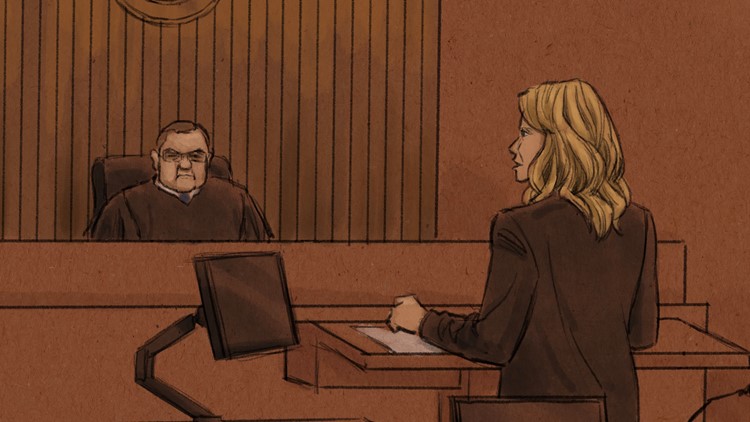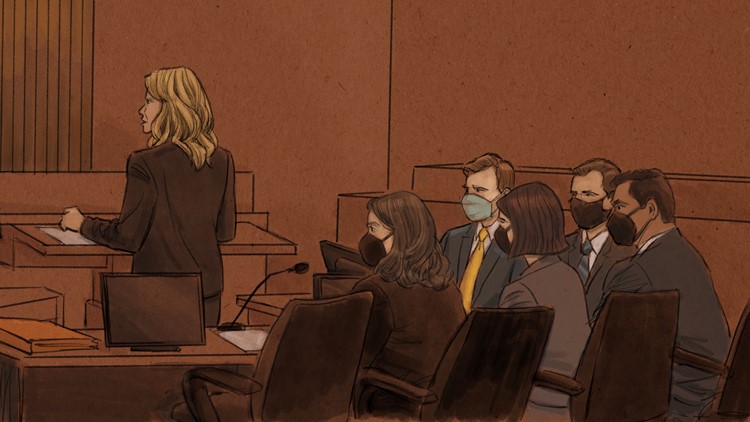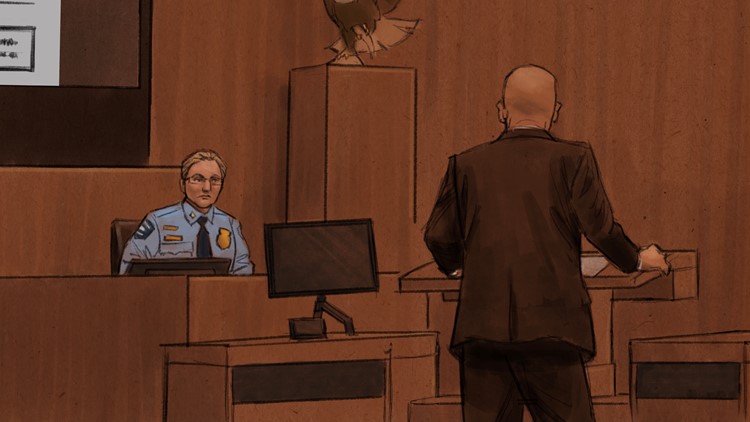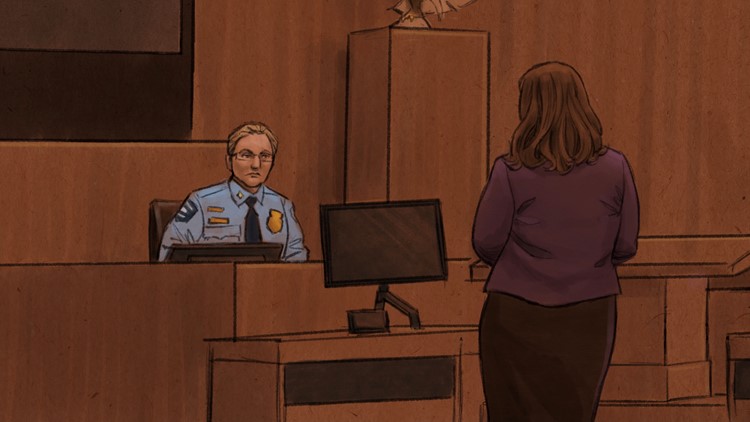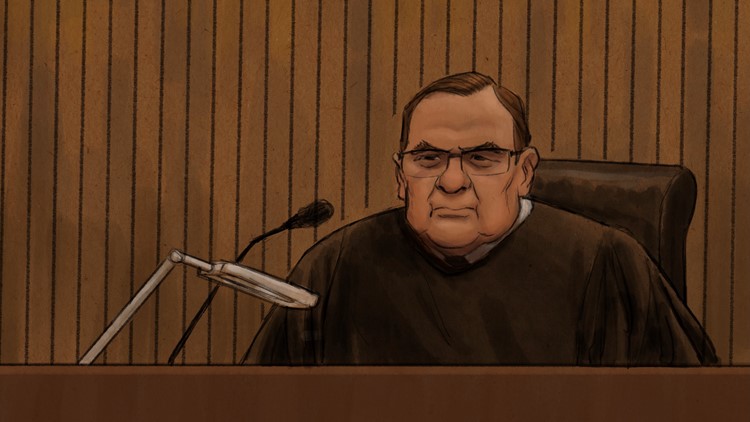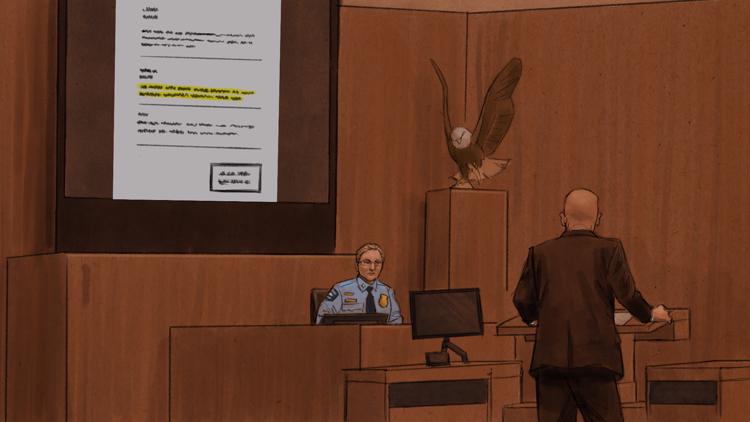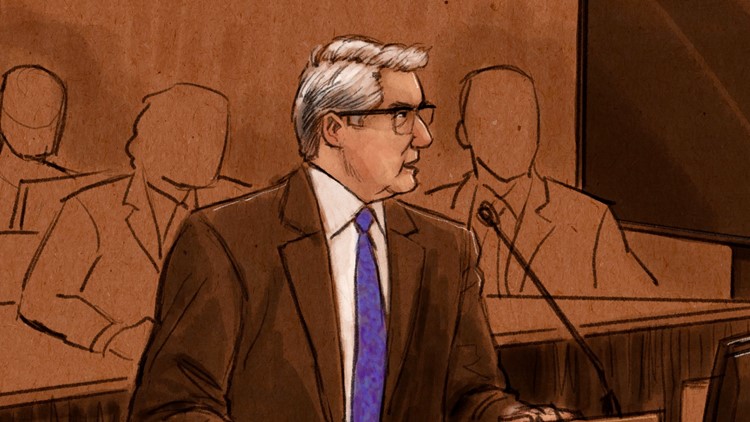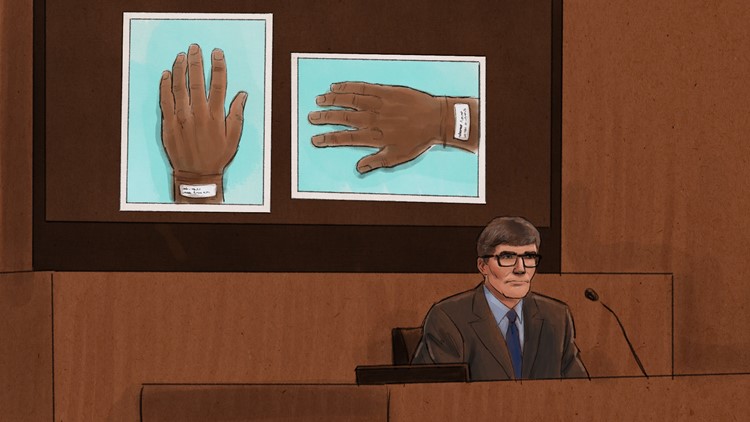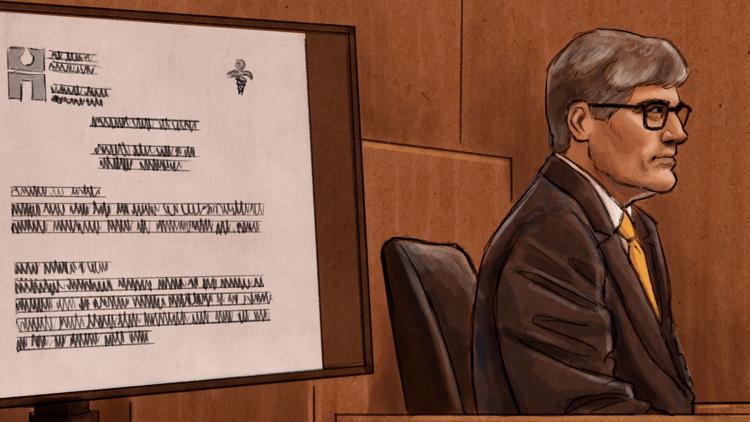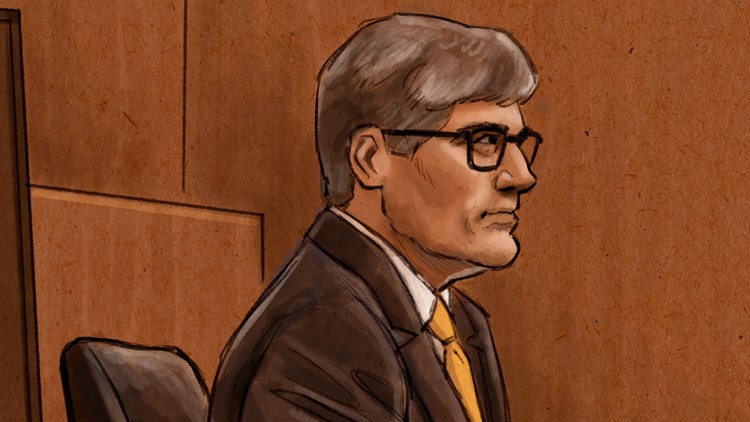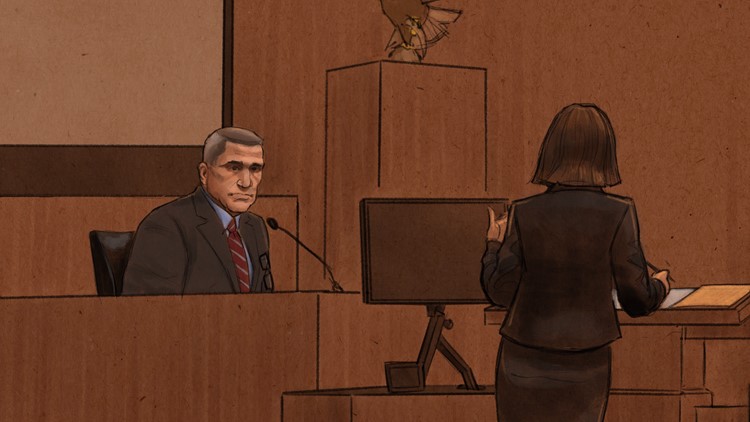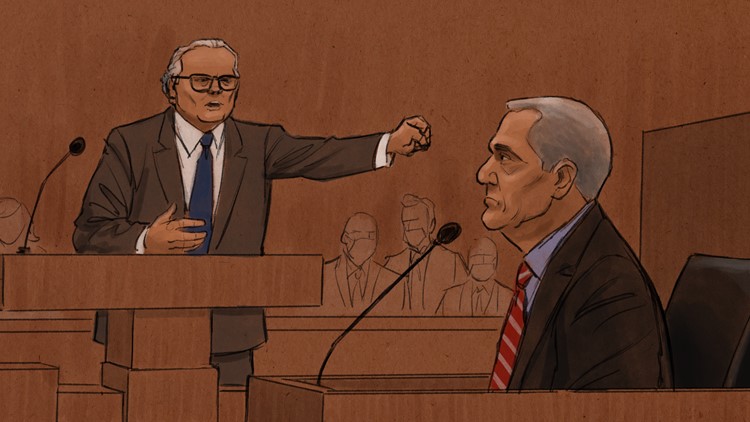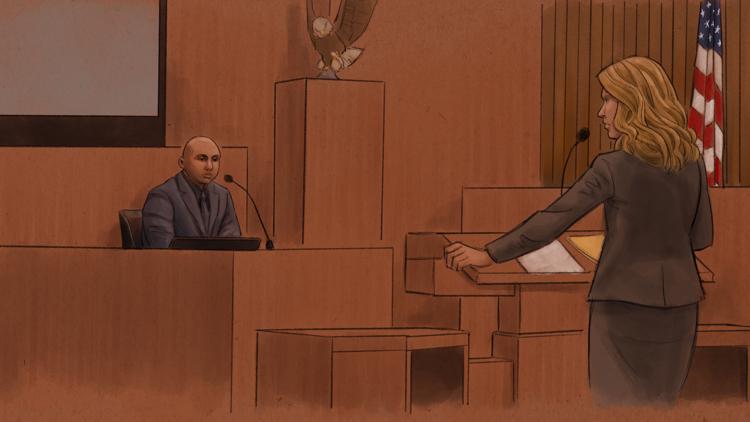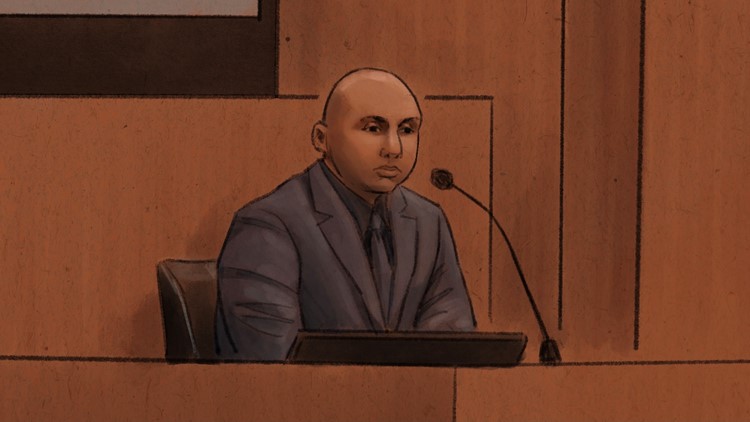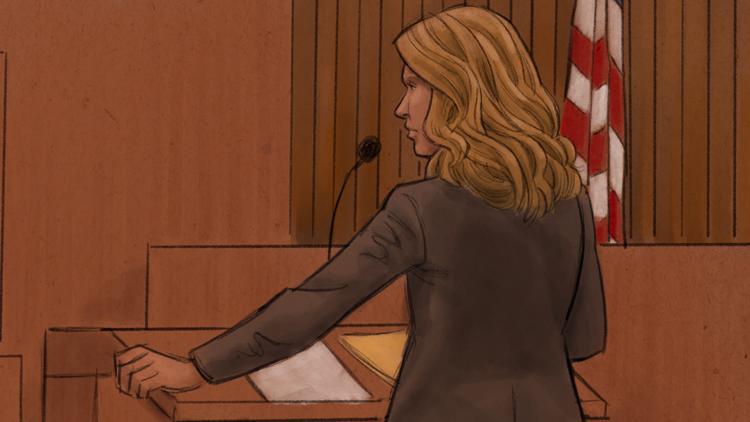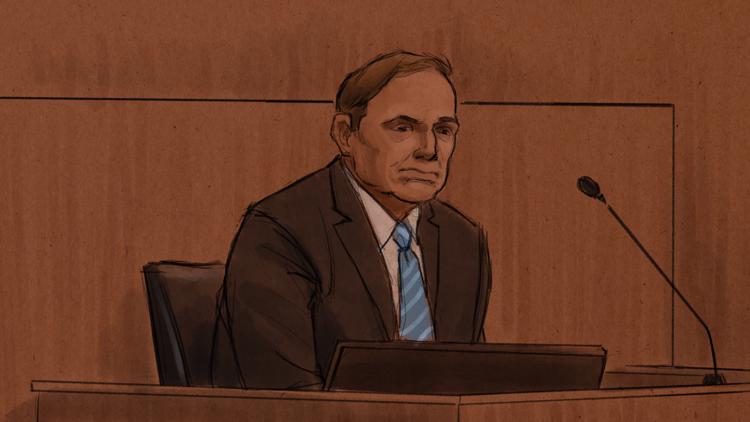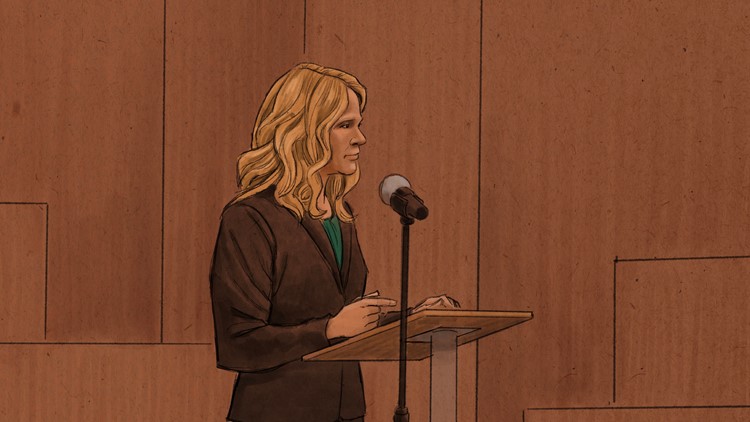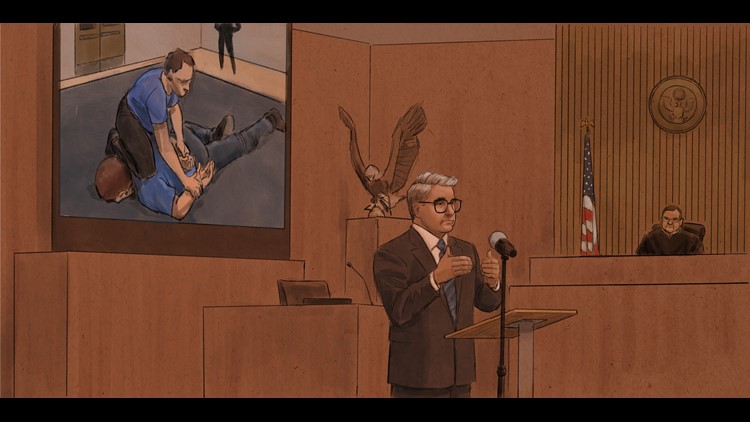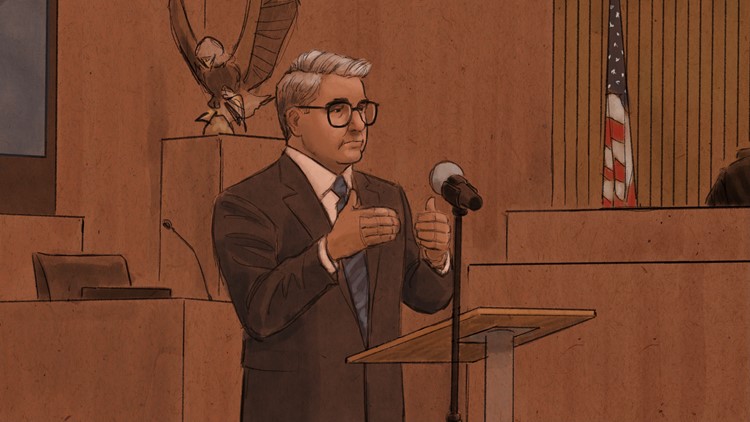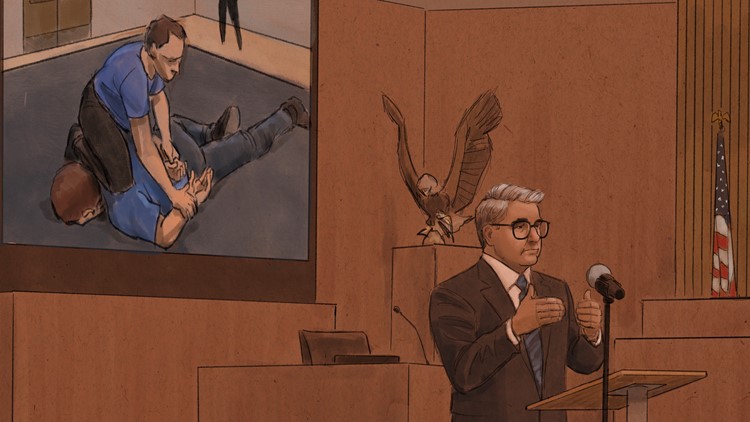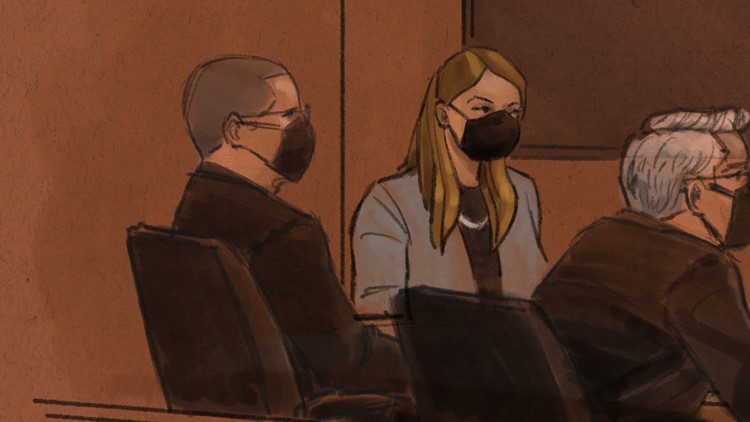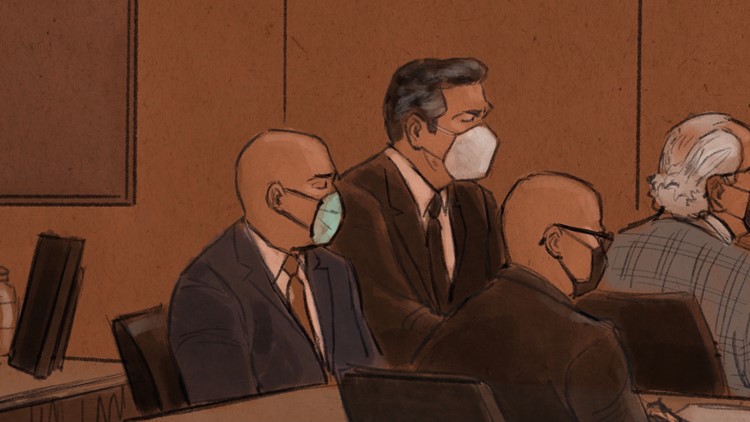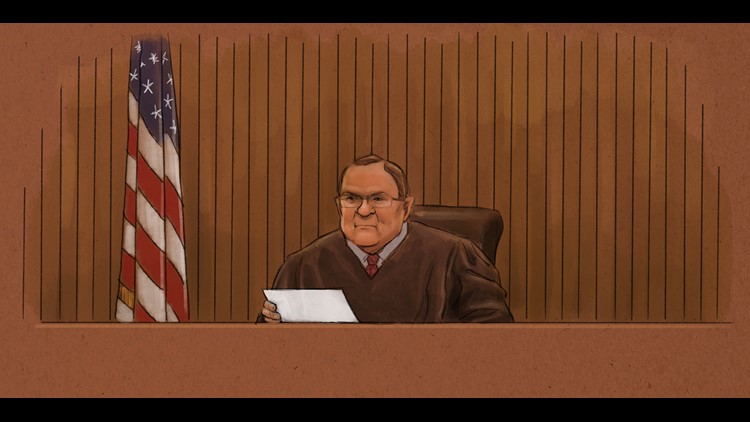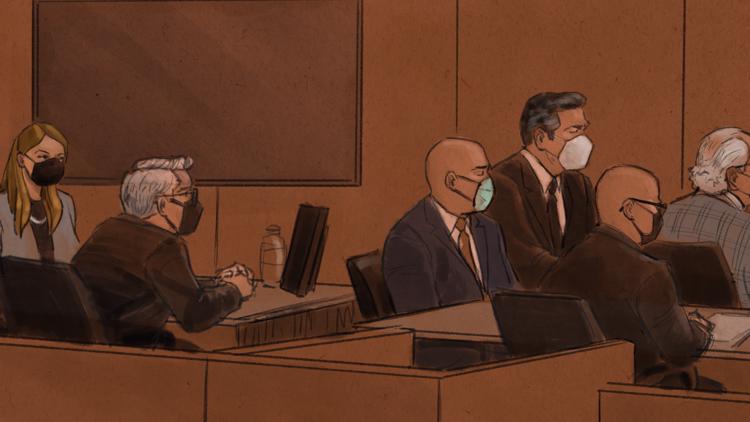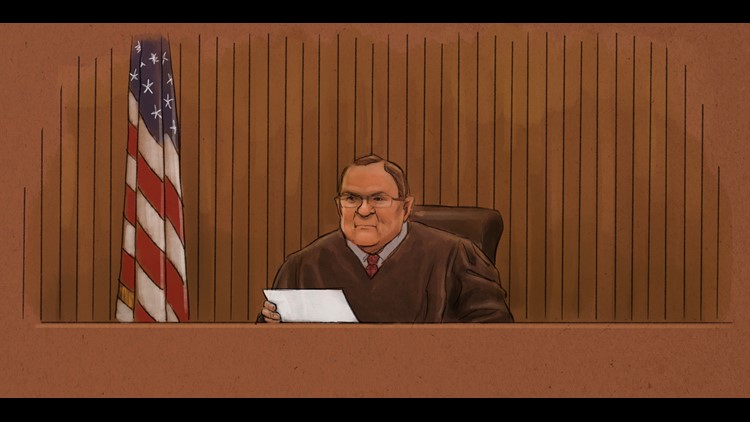ST PAUL, Minn. —
- Tou Thao says he was filling a "support unit" role at the scene
- All three ex-officers will testify in federal trial
- Darnella Frazier briefly leaves witness stand in tears at beginning of testimony
- National use-of-force expert Timothy Longo testifies on officer response
Editor's note: The attached video originally aired on Feb. 14, 2022
Former Minneapolis police officer Tou Thao was called to the stand on Tuesday morning as defense teams began laying out their cases in the federal trial of Thao and two others who are charged with depriving George Floyd of his civil rights
At the start of Tuesday's proceedings, Thomas Lane confirmed for Judge Paul Magnuson that he will testify in his defense. J. Alexander Kueng and Thao indicated early in the proceedings that they would also testify.
Tou Thao testified that he never once touched George Floyd and thought his fellow officers were monitoring Floyd's medical condition.
Thao's attorney Robert Paule went through Thao's training, which included specific pictures of Thao and other fellow recruits using knee restraints - including knees to the neck.
Paule focused on the paramilitary nature of training at the Minneapolis Police Department.
When it came to the events of May 25, 2020, Thao testified that his job was crowd control, calling himself a "human traffic cone." He said he assumed the other officers were monitoring George Floyd's medical condition.
In fact, Thao said he didn't realize Floyd was in critical condition until after the ambulance took him away. He said he wasn't aware until he heard chatter from firefighters on his radio saying help was needed with CPR just blocks away.
In cross examination, the prosecutor got Thao to acknowledge that it is unreasonable to use force on person who is no longer resisting, and that officers who see a fellow officer committing a crime have a duty to intervene.
Thao is scheduled to resumed his testimony on Wednesday morning.
2 p.m.
Paule continued his direct questioning of his client, Tou Thao, when court resumed after lunch.
Thao testified about what he believed to be his role at the scene as the events of May 25, 2020 unfolded. He told the jury he was trying to maintain a barrier between the gathering crowd and his fellow officers and give responding paramedics room to tend to George Floyd. Thao said it wasn't until after the ambulance left that he learned Floyd was in critical condition.
Thao told Paule that he believed he had served as a "support unit" to the other officers because he did not have as much information as them at the time.
Prosecutor Bell then started cross-examining Thao, getting him to agree that using force on someone without a pulse would be unnecessary.
As far as Thao's duty to intervene, Bell asked a number questions regarding the discipline officers need to have to reduce force when a subject stops resisting. Thao agreed that an officer might want to avoid the neck area of a suspect when they stop resisting, and that specifically in Floyd's case, Chauvin did not even use the type of neck restraint taught to Minneapolis police officers.
After a series of questions, Bell got Thao to agree that at one point while Chauvin was on Floyd's neck, he could see that Floyd appeared to be unconscious. Bell attempted to play video footage that she claimed showed Thao could see the other officers, but after an objection from Paule, the judge told Bell, "We've seen this thing over and over."
Bell instead brought up a still frame from the wide shot milestone video, showing Thao looking at the three other officers. Thao then reluctantly agreed with Bell that he could see what his fellow officers were doing.
12:45 p.m.
After returning to the stand after morning recess, Thao answered questions about reporting to the call involving George Floyd and the process of restraining him with fellow officers.
Thao testified that he was partnered with Derek Chauvin during the forgery call to Cup Foods. The call was reported as a level one, meaning get there fast, but it was soon canceled by Lane and Kueng. Chauvin and Thao continued to the scene with their sirens off because "Cup Foods is hostile to police."
When Thao and Chauvin arrived, they saw Lane and Kueng struggling to get Floyd into the patrol car, Thao testified.
“I’ve never seen this much of a struggle," he said.
Thao testified that he did not touch Floyd when they tried to get him into the car but they soon moved him onto the ground and Floyd repeatedly said he couldn't breathe. He maintained that "it was obvious he (Floyd) was under the influence of some kind of drugs."
Thao went on to testify that Floyd showed signs of excited delirium.
After being unable to get Floyd into the car, Thao testified that he went looking for a hobble to restrain Floyd but opted not to use it because EMS was on their way and it would take longer if they “had him tied up like a Christmas present." He said due to MPD's use of force policy, they would have needed a sergeant to come review the use of a hobble before he could have been transported by EMS.
Thao said he had experienced about 30 people with excited delirium during his time with Minneapolis police, and said they were restrained until EMS arrived, then handcuffed to a gurney and sedated.
Defense attorney Paule asked Thao if he had seen Chauvin's knee on Floyd's neck and Thao said it wasn't uncommon to see that, and added that he doesn't use that technique because he's shorter and would have lost his balance if he did.
When asked by Paule why he didn't help in restraining or medically assessing Floyd, Thao testified “Because at that point, I have a different role to do... crowd control to allow them to attend to Mr. Floyd.”
He added that he didn't believe the off-duty firefighter at the scene was really with MFD because of how she sneaked up on him.
Thao testified that officers are trained to perform CPR when someone can't breathe, and said he did not see the other officers performing it on Floyd.
“If they’re not doing CPR then I assume that he’s still breathing and fine," Thao said.
The trial took its lunch recess just after 12:35 p.m.
11:15 a.m.
Defense attorney Robert Paule began by asking Thao personal questions about his family and upbringing, with the defendant describing how he grew up in a poor household in north Minneapolis. He described eating just once a day, and exchanging four outfits between six children so they could go to school.
Thao became emotional describing his first encounter with a police officer at the age of 7 or 8, telling jurors how his "strict" father began beating him and his brother with an extension cord after they got in a fight. When his mother tried to intervene, Thao's father allegedly grabbed a pistol and threatened to kill all of them. They fled to the house of an aunt who could speak English, and she called Minneapolis police.
When officers arrived, Thao says he took them to the family home, where they arrested his father and took him to jail.
"Why did that experience make you think about wanting to be a police officer," Paule asked his client.
"It was the two most peaceful days of my childhood," Thao answered.
Thao then told the courtroom how he worked security jobs as a young man before finding out about MPD's community service officer (CSO) program. While working as a CSO he went to school, became POST certified and was hired as an MPD recruit.
Paule segued into Thao's police training, showing jurors photos with training officers kneeling on a prone subject while demonstrating how to handcuff and restrain a suspect. All of the photos were taken during Thao's training at the MPD Academy in 2009. Paule made a point to show jurors the subject is in the prone position, even after being handcuffed.
KARE 11's Lou Raguse, who has been covering the proceedings from the federal courthouse throughout the trial, says a photo of recruits running in formation was used to emphasize the paramilitary aspects of the academy. Thao testified that they were taught to answer superiors with a "yes sir, no sir," "yes ma'am, no ma'am," as the defense maintains that the former officers were following Chauvin's lead once he arrived on scene.
The federal trial of Thomas Lane, J Alexander Kueng and Tou Thao opened its fourth week with the prosecution calling use-of-force expert Timothy Longo to the stand, who told jurors he was contacted by federal prosecutors and agreed to appear for free.
When questioned by prosecutors Longo testified that Lane, Kueng and Thao's conduct on May 25, 2020 was inconsistent with generally accepted police practices at the time of Floyd's death.
KARE 11 Reporter Lou Raguse said there were multiple objections by defense attorneys that questions by prosecutors and testimony by Longo were repetitive and cumulative, a position sustained by Judge Magnuson.
Following a break for lunch Longo continued his testimony, telling Lane's attorney Earl Grey that "someone should have done something."
The prosecution's final witness was Darnella Frazier, the young woman who filmed Derek Chauvin hold his knee on George Floyd's neck for more than nine minutes on May 25, 2020.
As prosecutors started questioning Frazier, she broke down on the stand saying, "I can't do it," and walked out of the courtroom. The judge dismissed the jury for a brief break.
Defense attorney Robert Paule raised concern about Frazier's emotions, claiming "prejudicial effect" would affect his client should she continue to cry while testifying. Magnuson told Paule that testifying can be an emotional thing for any person, and he allowed her to continue her testimony.
When she returned to the stand Frazier talked about the night Floyd was murdered, beginning with her walking up to the scene at 38th and Chicago with her cousin.
After a short line of direct questioning from the prosecution, and some cross-examination from Gray, Frazier was dismissed from the stand and the state rested its case.

